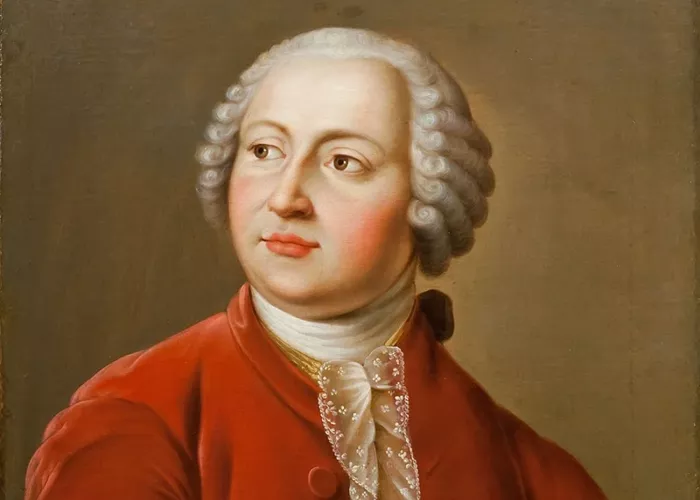Welcome to Poem of the Day – Morning Meditation on God’s Grandeur by Mikhail Lomonosov.
Mikhail Lomonosov, one of the most prominent figures of 18th-century Russian literature and science, is renowned for his wide-ranging intellectual contributions. Among his many works, the poem Morning Meditation on God’s Grandeur stands as a striking reflection of his deep reverence for nature, divine presence, and the harmonious relationship between the two. This essay explores the themes, structure, and philosophical underpinnings of Lomonosov’s Morning Meditation on God’s Grandeur, examining how the poem conveys the splendor of the divine in the natural world through rich imagery and meditative tone.
Morning Meditation on God’s Grandeur Poem Explanation
The central theme of Lomonosov’s Morning Meditation on God’s Grandeur is the recognition of God’s infinite power and majesty, which is manifested in the natural world. The poem opens with a description of the early morning, where the narrator witnesses the awe-inspiring beauty of nature at dawn. The first lines immediately set the tone of reverence, as the poet observes how the vastness and grandeur of the natural world reflect the glory of God. There is a harmonious interplay between divine omnipotence and the beauty of creation, wherein nature is not merely a physical realm but a sacred manifestation of God’s omnipresence.
This theme of divine grandeur embedded within nature can be understood in the context of the religious and philosophical ideas of the time. Lomonosov, influenced by Christian teachings, perceives God as both transcendent and immanent—His grandeur is seen not only in the heavens but also in the minute details of the natural world. For Lomonosov, nature itself becomes a temple where God’s glory is displayed in every blade of grass, every sunrise, and every cloud in the sky. This theme resonates with the Romantic idea of the sublime, where awe and reverence for the divine are inspired by the beauty and majesty of the natural world.
The Structure and Imagery of the Poem
Lomonosov employs vivid, sensory-rich imagery throughout Morning Meditation on God’s Grandeur, using the natural elements as symbols of divine power. The early morning setting is described with vibrant imagery—the sky is bathed in light, the dew glistens on the leaves, and the rising sun casts its golden rays over the earth. Through these descriptions, Lomonosov evokes a sense of wonder at the perfection and balance of nature, reinforcing the idea that God is the Creator who has endowed the world with beauty and harmony.
The structure of the poem is notable for its use of meter and rhyme, which contribute to the meditative and contemplative tone. The regularity of the verse mirrors the orderly beauty of the natural world, suggesting that there is a deeper, divine order behind the universe. Lomonosov’s command over language is evident in his use of metaphors and similes to elevate the natural world to a sacred level. For example, he compares the sun to a “golden chariot” that drives away the darkness, emphasizing the sun’s role as both a physical and spiritual illuminator.
Philosophical and Theological Underpinnings
Lomonosov’s meditation on God’s grandeur also has philosophical and theological significance. His work reflects the influence of Christian thought, particularly the idea that God’s presence is manifest in the world He created. The act of meditating upon God’s creation is seen as a spiritual exercise—one that allows the human soul to recognize both the vastness of God’s power and His intimate connection to the world.
This idea connects to the broader intellectual currents of the Enlightenment era, which sought to reconcile reason with faith. Lomonosov, like many of his contemporaries, viewed the natural world as a reflection of divine reason. The order and symmetry of the universe serve as evidence of a rational Creator. At the same time, Lomonosov’s poem embodies the Romantic ideal of connecting the human soul with the divine through the experience of nature. The poem suggests that by observing the beauty and harmony of the world, one can gain a deeper understanding of God’s majesty.
The Poem’s Meditative and Contemplative Tone
The tone of Morning Meditation on God’s Grandeur is meditative and introspective. Lomonosov’s speaker does not merely describe nature; rather, he engages with it on a deeper level, contemplating the divine presence within it. This reflective tone is common in religious poetry, where the act of meditation serves to elevate the poet’s spirit and bring him closer to God.
In many ways, the poem is a dialogue between the poet and God, facilitated through the contemplation of the natural world. The speaker’s reverence for the sunrise, the trees, the rivers, and the earth reflects a recognition that these natural elements are not merely material phenomena but divine expressions. The morning, with its promise of renewal and light, becomes a metaphor for spiritual awakening, where the poet’s soul, like the world around him, is illuminated by the presence of God.
Conclusion
Lomonosov’s Morning Meditation on God’s Grandeur stands as a powerful exploration of the relationship between the divine, nature, and humanity. The poem’s careful description of the natural world as a reflection of divine glory invites the reader to perceive the world not as a detached, secular space but as an integral part of a divinely ordered universe. Through vivid imagery and a contemplative tone, Lomonosov presents a vision of the world that is both spiritually enriching and philosophically profound.
In conclusion, Lomonosov’s Morning Meditation on God’s Grandeur transcends the mere description of nature, becoming a meditation on the divine. Through his poetic skill, he invites us to reflect on the beauty and order of the natural world as an expression of God’s eternal majesty. In this way, the poem encourages both a deep sense of awe for creation and a recognition of the presence of the Creator within it.

